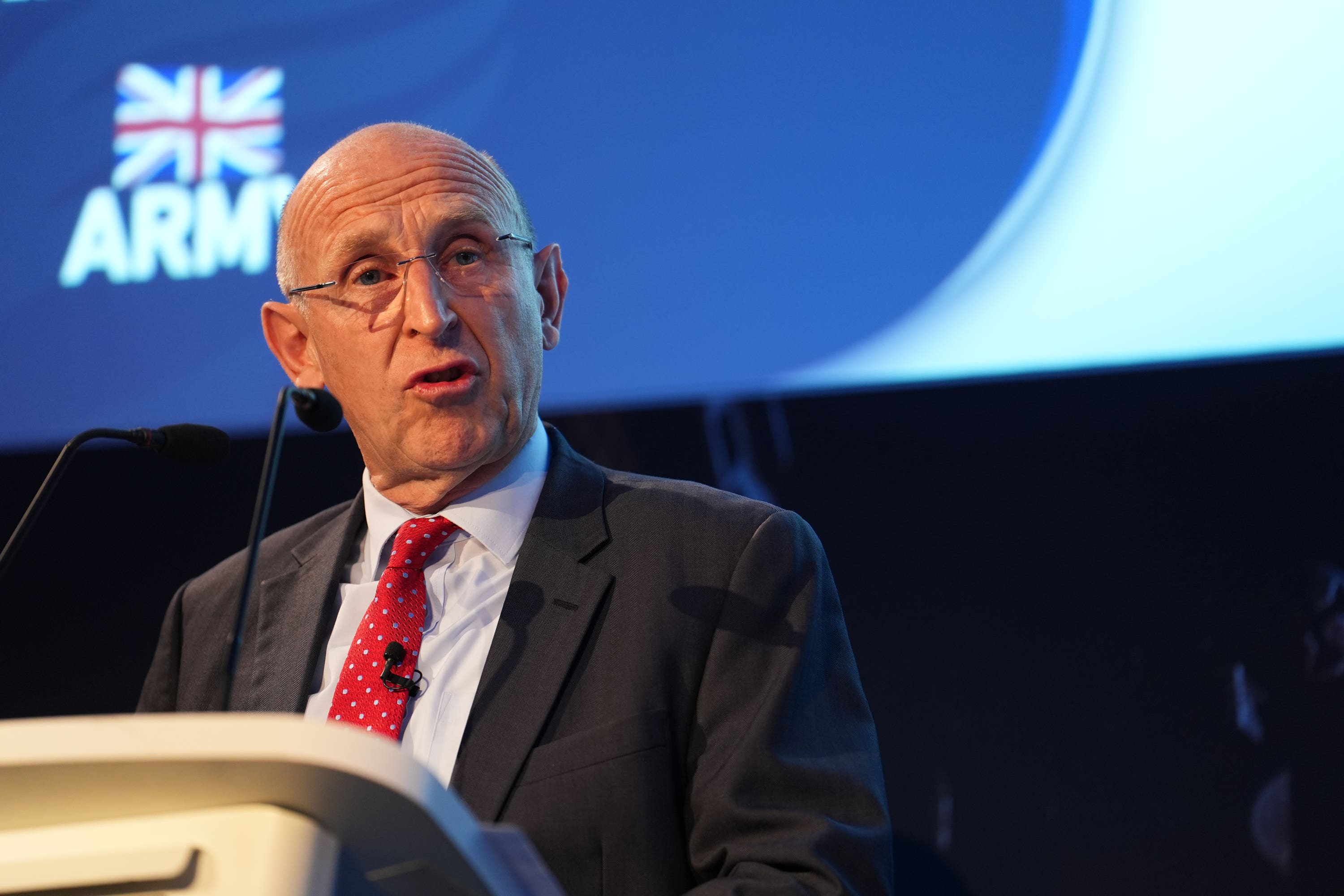Defence Secretary hails new UK-Germany security pact
John Healey ratified the ‘joint defence declaration’ between London and Berlin as he embarked on a 48-hour diplomatic blitz across Europe.

John Healey hailed a new security pact between Britain and Germany as the first step towards a “deep new defence relationship” between the countries, as the UK Government seeks to rebuild post-Brexit ties with Europe.
The Defence Secretary said the new Labour administration is “getting on with the job” and “resetting our relationships” with allies on the Continent after signing a “joint defence declaration” between London and Berlin.
Ministers agreed on six priorities for tighter collaboration as part of the new accord, including “comprehensive” co-operation in the field of long-range capabilities, the Ministry of Defence (MoD) said.
Other key goals are “strengthening UK and German defence industries, reinforcing Euro-Atlantic security, improving joint operations, confronting evolving security challenges” such as cyber threats, and supporting Ukraine.
Mr Healey is making his first ministerial visits to Germany, France, Poland and Estonia on a whistlestop 48-hour tour aimed at sending a message that European security will be the Government’s “first foreign and defence priority”.
On Tuesday night he met counterparts in France, alongside the Chiefs of Defence Staff from both nations, and thanked British personnel helping to support security at the 2024 Paris Olympics.
Our new defence declaration between the UK and Germany will kick-start a deep new defence relationship, built on our nations' shared values
The signing of the joint declaration in Germany on Wednesday will pave the way for the new UK-German Defence Agreement discussed by Chancellor Olaf Scholz and Sir Keir Starmer at the recent Nato summit, he said.
On Thursday, the Defence Secretary will travel to Estonia to meet British troops deployed to protect Nato’s eastern border with Russia and pay tribute to the role UK forces play in the region.
It comes after the Prime Minister sought to kick-start changes to the way Britain engages with its neighbours as he hosted the European Political Community summit at Blenheim Palace last Thursday.
Mr Healey said: “In our third week, this Government is getting on with the job and resetting our relationships with European allies to make Britain secure at home and strong abroad.
“These visits send a clear message that European security will be this Government’s first foreign and defence priority.
“Our new defence declaration between the UK and Germany will kick-start a deep new defence relationship, built on our nations’ shared values.
“And in France, Poland and Estonia we will continue to strengthen our defence ties with our European allies – as we all stand steadfast behind Ukraine.
“It is a privilege to visit and thank our British troops defending Nato’s eastern border with Russia. Their presence and fortitude in the face of (Russian President Vladimir) Putin’s aggression shows that Nato is the cornerstone of European defence.”
The UK-German pact, described by the MoD as the most “comprehensive” declaration ever signed between the two countries, commits to fostering a joint procurement initiative, promoting technology sharing and high-level strategic exchanges.
On deep precision strike capability, it says: “The Ministries of Defence of Germany and the United Kingdom will, together with partners, undertake a long-term, comprehensive co-operation in the field of long-range capabilities.”
Both countries are among the biggest providers of support to Ukraine. Germany is Kyiv’s second largest military donor after the US.
The prospect of Donald Trump winning the US election has prompted debate among Nato allies of how to ensure support is sustained given his past criticisms of the bloc and threats to reduce aid to Ukraine.
During his first Prime Minister’s Questions in the Commons on Wednesday, Sir Keir was pressed on whether he had raised with German leaders the possibility of providing long-range missiles to Ukraine.
Answering a question from acting Conservative leader Rishi Sunak, he said: “I had the opportunity in Washington at the Nato Council to talk to our German counterparts.
“There was a strong theme there on Ukraine – discussed with all of our allies – and part of my message was to urge all of our allies to provide further support where they can to the Ukrainian people, and that was well received.”
Bookmark popover
Removed from bookmarks